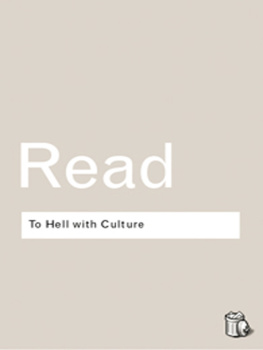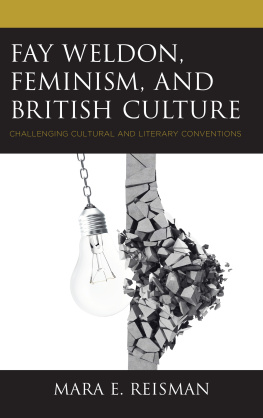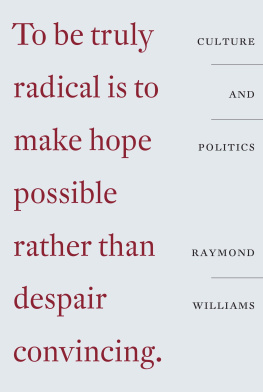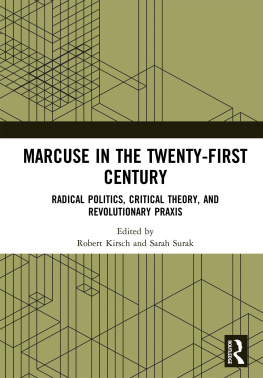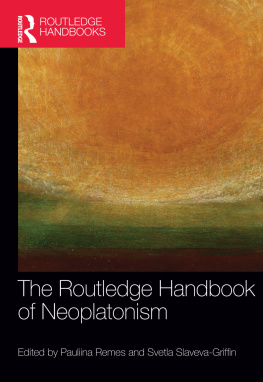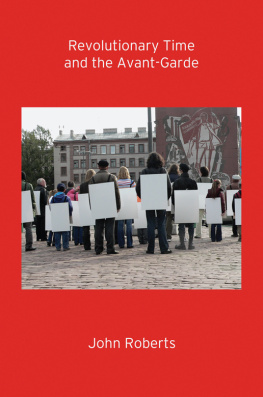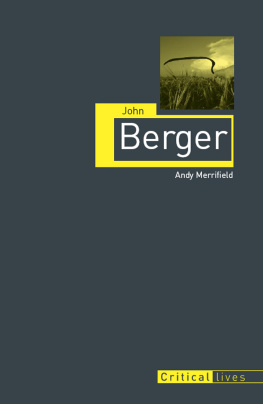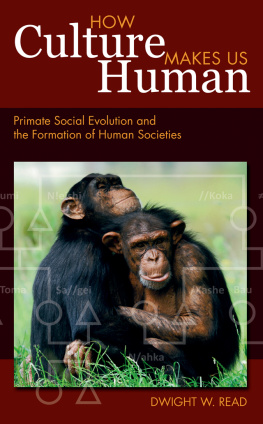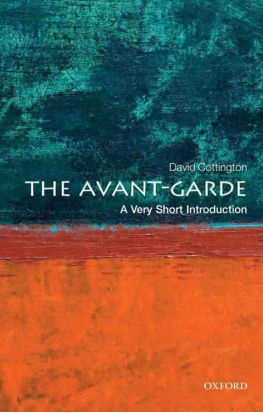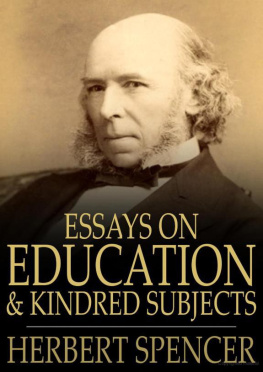1
INTRODUCTION
There are no abstract truthsno Mass-Man, no proletariat. There is only Man. When the Pulse has been nailed upon the crossbeams, lo, Reason gives up its viable breath and becomes a wandering ghostly Error. Truth and folly are ever about to expire, so that we, like our beloved Sancho Panza kneeling at the death-bed of Don Quixote, must always be ready to go out to receive the holy communion of cudgels and distaffs, for the rebirth of the Pulse, living anew, in our veins and bones, as the quickened Truth.
Edward Dahlberg, Do These Bones Live ? (New York, 1941).
Ever since democracy became a clear political conception in the city-state of Athens, democratic philosophers have been faced with the anomaly of the artist. It has seemed to them that the artist, by his very nature, cannot be accommodated within the structure of an egalitarian community. He is inevitably a social misfit, to normal people a psychotic, and for rational thinkers like Plato the only solution was to banish him from the community. A modern rationalist would probably recommend that he should be cured of his psychosis.
There are two main problems: (1) What is it that seems to separate the artist from the rest of the community, making him unique among men? (2) What is it that nevertheless reconciles the community to this separatist individualthat is to say, what values does the artist contribute to the community that make the community accept or tolerate his presence among them?
The essays which are collected in this volume return again and again to these problems, and by way of introduction I should like to attempt a general summary of the view I have put forward.
We ought first to decide whether the artist is physically unique. We know that mankind is divisible into various distinct psychological types, and that these types have a basis in physiological factors. Is the artist such a type? There is a certain amount of evidence which suggests that he is. We know that some musicians possess what is called absolute pitch. It is a natural disposition which is inherited and which cannot be acquired. A similar faculty in poets and plastic artists is not so commonly recognized, but nevertheless it exists. In poetry it is an absolute awareness of the identity of word and image, and in the plastic arts it probably takes the form of what we call an intuitive sense of proportion, with or without an intuitive sense of colour harmony, and these senses are strictly analogous to the musicians absolute pitch. These facts, although incompletely investigated, must, I think, be admitted. But it must also be admitted that they are not essential. Several famous composers have been without absolute pitch, and there have certainly been poets without absolute identity of word and imagein fact, to insist on such an identity, in view of the limitations of language, would considerably restrict the range of poetry. One can also easily think of great painters whose colour sense has been defective, and of great architects who have had to rely on consciously applied canons of proportion. In the end, the most that one would be able to claim is that the possession of such unique gifts merely gives special quality to the work of a particular artist.
Apart from the occasional possession of such physiological peculiarities, it is obvious that the artist is not a separate psychological type. There are introvert and extravert artists, schizophrenic and manic-depressive artists. In fact, every psychological type is potentially an artistwhich is only another way of agreeing with Eric Gill that every man is a special kind of artist.
The acceptance of this factand I for one do accept itinvolves us logically in an admission that art is skill: a man does something so well that he is entitled to be called an artist. We are still left with a wide scope for argument, for we must ask what that something is: what is the purpose of that skill?
It was at this point that Gill and I, in our prolonged discussions, used to diverge, for I would insist that art is not merely skill to make, but also skill to express. Express what? Gill would ask, and if I was careless enough to use a phrase such as: To express his personality, Gill would be at me with the mallet and chisel he kept in his mind no less than in his hands, demanding if I had ever seen a personality, and how in Gods name it could be expressed except in the making of something useful. And so the argument went on, to its inconclusive end. But I still maintain that there is a sense in which art is expression as well as making, and it is important that I should maintain my point, because it bears directly on this problem of the artist and society. For it is not sufficient to say that the artist is a skilled worker, and that he will always be valued by the community because his skill is useful. The truth is that the artist is very often (oftenest when he is greatest) offering something to the community which the community does not want to accept, which the community at first finds very unpalatable.
The mistaken presentation of my point of view, of which I have myself been guilty in the past, is to describe art as self -expression. If every artist merely expresses the uniqueness and separateness of his self, then art might be disruptive and anti-social. A lot of art in the past has been of that kind, and has given rise to the whole problem of dilettantism. A social art can never be dilettantedilettante art can never be social.
Obviously the great artist who is not merely making something, like a carpenter or a cobbler, but expressing something, like Shakespeare or Michelangelo or Beethoven, is expressing something bigger than his self . Self-expression, like self-seeking, is an illusion. It is the action of an individual who pits himself against the community, who says I am bigger, or better, or stronger than other men, and will therefore enslave them, make them serve my individual purposes. But a democracy would be right to resent the presence of such individuals in its midst, for democracy starts from the proposition that all men are equalif this dogma is not accepted, then the word democracy is being used in a sense which I do not regard as legitimate. The word democracy should always imply, not only liberty and fraternity, but also equality.
Society expects something more than self-expression from its artists, and in the case of great artists such as those I have mentioned, it gets something more. It gets something which might be called life-expression. But the life to be expressed, the life which is expressed in great art, is precisely the life of the community, the organic group consciousness. It is the artists business to make the group aware of its unity, its community. He can do this because he, more than other men, has access to the common unconsciousness, to the collective instincts which underlie the brittle surface of convention and normality. I cannot say why the artist should have this gift, any more than I can say why he has absolute pitch, etc. It is probably a consequence of his early upbringing, the actual course of his adaptation to society in earliest infancythe complicated process which psychoanalysis is slowly reconstructing. Whatever the explanation, the function of the artist in modern society is much the same as that of the medicine-man or magician in a primitive society: he is the man who mediates between our individual consciousness and the collective unconsciousness, and thus ensures social re-integration. It is only in the degree that this mediation is successful that a true democracy is possible.
This office of mediation cannot be forced upon the artist. His function is catalytiche aids the social revolution without himself undergoing any change, without being absorbed by the social substance. That, it seems to me, is the central doctrine of Wordsworths Preface to the Lyrical Ballads , which is probably the most careful definition of the poets function ever made. I do not think there are any essential problems of the artist in a modern society which we do not find anticipated there. The Preface was first published in 1800at a time, that is to say, very comparable to our own. Two years earlier, in 1798, Wordsworths political consciousness had reached a crisishe had experienced a final disillusionment with the French Revolution. The crisis for so many poets and artists of today is of exactly the same nature. The signing of the pact between Germany and Russia was probably the breaking-point, but the Moscow trials and executions, and a gradual realization that the Russian Revolution had followed precisely the same course as the French Revolution, had created a psychological tension which was bound to break sooner or later. Hundreds of poets and artists of every kind found that their idealism was suddenly deadbetrayed by the cynical politicians who had for so long deceived them. Poets who now turn in on themselves, to discover the truth about the poet and society, begin to tread the same labyrinth as Wordsworth. They might save themselves much trouble by re-reading the Preface , weighing it phrase by phrase.

